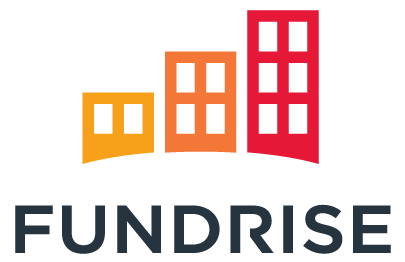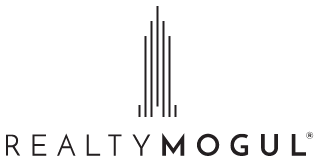In a thought… Real estate crowdfunding has democratized investing in areas, such as large real estate projects, that were only available to the wealthy or well connected. You have heard me discuss crowdfunding in other parts of Actively Passive, but I would like to go into depth on the topic, as one of the biggest benefits of using a crowdfunding platform is that you get to leverage the platform’s due diligence resources. There will usually be a small tradeoff or fee for this privilege, but this allows you to be even more passive than before. In other words, the platforms are doing the work, not you.
Crowdfunding is the practice of funding a project or venture by raising small amounts of money from a large number of people, typically via the Internet. Crowdfunding is a form of crowdsourcing and alternative finance. This modern crowdfunding model is generally based on three types of actors: the project initiator who proposes the idea or project to be funded, individuals or groups who support the idea, and a moderating organization (the “platform”) that brings the parties together to launch the idea.*
Real estate crowdfunding can include various project types from commercial to residential developments, and is the online pooling of capital from investors to fund mortgages or equity secured by real estate. The crowdfunding concept is now prevalent in many contexts and industries, but this discussion will focus on how it pertains to commercial real estate investing, particularly, multifamily rental properties. Investment via specialized online platforms in the US offer low minimum investments, as low as $1,000 to $25,000. Some platforms market more toward accredited investors, though some make investments available to sophisticated investors.
The JOBS Act of 2012 made it easier and has huge implications for everyday people to invest in big-money projects that they previously didn’t have access to, and to diversify the risk of their portfolios beyond stocks and bonds, opening up the potential of significant returns. I believe that investing in multifamily real estate adds an additional layer of protection to your portfolio by protecting against stock market declines.
Jumpstart Our Business Startups (JOBS) Act – in 2012 this act was signed into law. Though it was meant to stimulate the economy in many different and overarching ways, it had some provisions that changed a specific segment of the US market allowing small- to mid-sized businesses to meet and obtain their capital needs via crowdfunding. Initially, investments were limited to accredited investors only, but in 2016, this was opened up to non-accredited investors as well. Non-accredited investors, also known as sophisticated investors, now had the ability, like their accredited counterparts, to purchase investment properties jointly with other investors. This was a game-changing win-win for investors, as this now allows for more diversified investments and healthier portfolios, as well as for syndicators, as this increases their ability to raise funds for their multifamily projects.
Advantages of Real Estate Crowdfunding Platforms
Tools – Most real estate crowdfunding platforms have an account page that displays your transactions, portfolio on the platform, electronic documents repository (including subscription agreements and tax forms), and messages. There will also be an account balance that tracks all distributions by project, as well as the opportunity to connect your bank account to your profile in order to have distributions direct deposited. You will also see current and upcoming deals and be able to watch investor presentations on demand.
Vetting of syndicators – Most platforms put both the sponsor and their deal through a very rigorous review process. This helps reduce financial risks and validate projects by evaluating the sponsor, the asset, the business plan, and the offering materials for each investment project. As few as 5% of the deals reviewed might make it to the point where you see the opportunity on the platform. Deep background checks and track record reviews are part of evaluating the sponsor, while scrutinizing the underlying market data, pro formas, and assumptions that support the deal and property itself.
Ease of use – With little time and fewer efforts, you can learn about an investment opportunity and decide whether or not to take advantage of it.
Exposure to investment opportunities – Crowdfunding as a whole offers an expanding pool and regularity of lucrative projects to invest in. They provide a detailed view on investment opportunities and seek to make the investment process as open and transparent as possible. There are usually great projects to invest in when you are ready, and eliminates or reduces the wait you might be experiencing with syndicators and their offerings not using a fundraising platform.
Diversification – Remember the warning about putting all your eggs in one basket? A well-diversified investment portfolio takes a bit of discipline, but is absolutely imperative as a wealth preservation strategy. Since there are so many crowdfunding funds to invest in you would be wise to pick several of them in order to divide your money between them. But even at one crowdfunding platform, there are multiple syndicators and projects to choose from. Either way, you have the ability to diversify your investment dollars.
Low minimums – Since many real estate crowdfunding platforms utilize a lot of automated processes via technology, they allow for smaller investments. And you can distribute a whole bunch of small investments across a wide variety of syndicators and projects. The fundraising platforms set minimum investments that are easily accessible to normal people, with minimums as low as $1,000.
Disadvantages of Real Estate Crowdfunding Platforms
Relationships – You don’t always get the opportunity to have a one-on-one relationship with the sponsors of a syndication.
Fees – Every real estate crowdfunding platform needs to make money in order to exist and be able to extend investment opportunities to you. In return for the services rendered, they will charge fees. Some are charged to you, while other might be charged to the project or the sponsor, the biggest of which might be commissions or management fees. Averages seem to be between 1% and 3%.
High minimums – Some platforms, especially some niche players, impose higher minimum investments, but this isn’t all that common.
Access denied – You might apply to invest in a platform only to find out that you are turned away. Some crowdfunding platforms are highly specialized an only accept certain investors, such as high-net-worth individuals. Do not be dismayed, as there are many platforms available to you. It’s a numbers game – literally.
Disadvantages of Investing Directly with Syndicators
Waiting – You may have a few syndicators you have chosen to invest with. You have done your homework and vetted their teams and abilities. But many syndicators do not have new deals every single month, so you end up waiting around until they do. This causes money to sit idle which may not always be in your best interest. On the other hand, waiting for a perfect investment could be good thing.
Connections – In most cases, you need to have already made a meaningful and substantive connection with a sponsor in order to even know about their upcoming projects. This can be hard work but worth it. Real estate crowdfunding platforms can eliminate this step.
Last Word
It is always a good idea to keep your investment options open. Make friends with all the syndicators that you are able to so that you can establish good relationships and trust. But you should also take a look at how easy some of the real estate crowdfunding sites make it easy for you to deploy your cash and keep it working for you. Start running.












